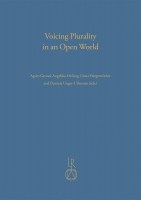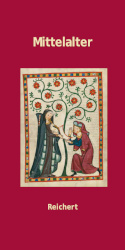Search
Editors: Hergenröther, Oana; Heiling, Angelika; Grond, Agnes; Unger-Ullmann, Daniela
Voicing Plurality in an Open World
2024
17.0 x 24.0 cm, 240 p., illustrations color, illustrations b/w, cloth
ISBN: 9783752006773
go to ebook version
17.0 x 24.0 cm, 240 p., illustrations color, illustrations b/w, cloth
110,00 €
ISBN: 9783752006773
go to ebook version
Short Description
In a world characterized by mobility and dynamic formations of cultural, linguistic, and social identities, the general understanding of languages – at least in Europe – still reflects hierarchies and classifications that are based on the 19th century-based nation-state ideology. This book deals with relevant aspects of language against the contemporary ideal of open, pluralistic societies, as well as with consequences on language of increasingly complex and diverse power relations, migration, globalization, and modern phenomena such as ICT.Description
Although linguistic plurality and power relations between languages (and their speakers) are changing constantly and at high speed as a result of global migration and democratization processes, the general understanding of languages – at least in Europe – still reflects hierarchies and classifications that are based on the 19th century-based nation-state ideology. However, status differences between languages and the associated power structures cannot be described using 19th century concepts and terminology. Such an understanding would negate all socio-political and socio-cultural developments of the last decades. In recent decades, globalization, increased mobility, transnational networking, and innovative communication technologies have created new forms of language use, more complex and diverse power relations and generally diverse perspectives regarding language. This book deals with relevant aspects regarding the status dimensions of language against the background of the ideal of an open, pluralistic society. These are the key points:- Changes in the linguistic landscape in the course of/as a result of migration and globalization
- Role and status of languages in pluralistic societies
- The relationship between native languages, diaspora languages, migrant languages, and majority languages
- Languages and the relevance of ICT
- Power relations between languages and their speakers
The volume Voicing Plurality in an Open World brings together scholars from the fields of linguistics and related disciplines with interest and expertise in linguistic issues and globalization issues, focusing on the status and power relations between languages and their speakers, and their influence and/or transformative potential in a world characterized by mobility, increased complexity, and diverse dynamic formations of cultural, linguistic, and social identities. The authors included here collaborated with Prof. Dieter Halwach in a variety of ways throughout his academic career. The book reflects the interests and focus of his work, as well as his efforts in developing the Plurilingualism Research Unit at the treffpunkt sprachen Centre of the University of Graz.




 Preface
Preface

 Neuerscheinungen 2023/2024
Neuerscheinungen 2023/2024
 Gesamtverzeichnis 2023/2024
Gesamtverzeichnis 2023/2024
 Katalog Oriental Studies & Linguistics
Katalog Oriental Studies & Linguistics
 Mittelalter
Mittelalter
 Deutsche Inschriften
Deutsche Inschriften
 Musiktherapie
Musiktherapie
 Literaturen im Kontext
Literaturen im Kontext